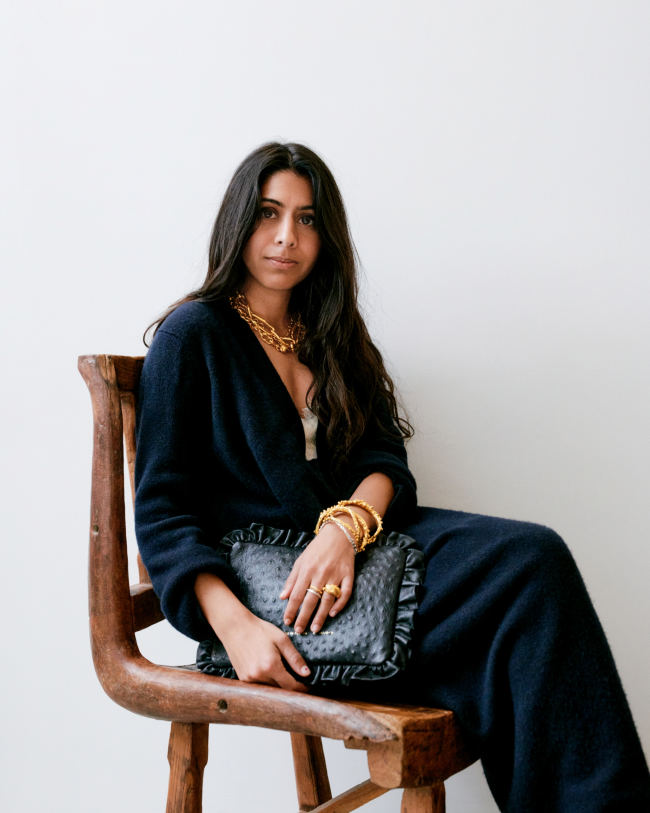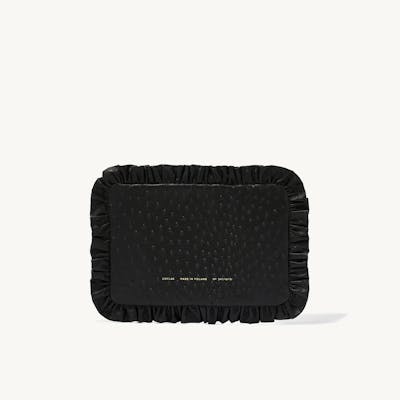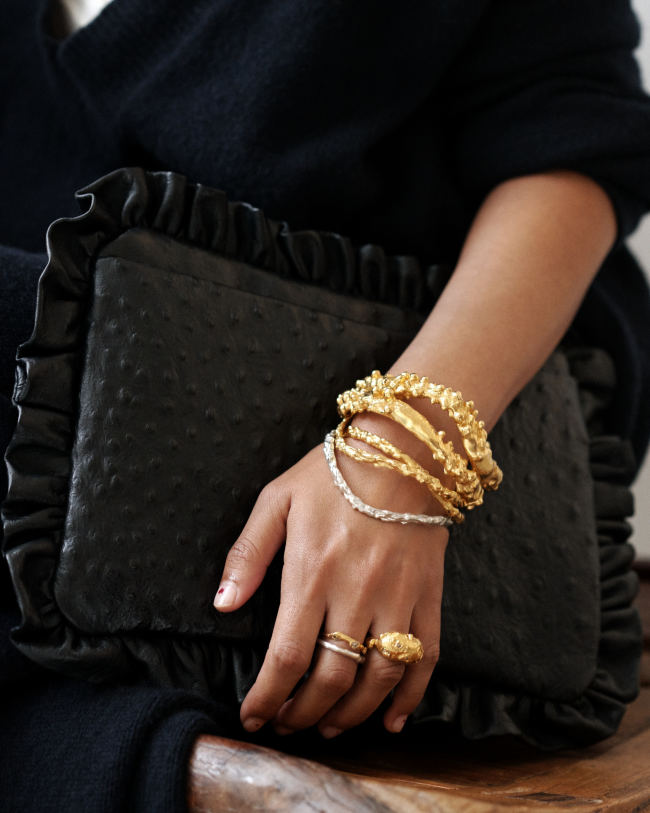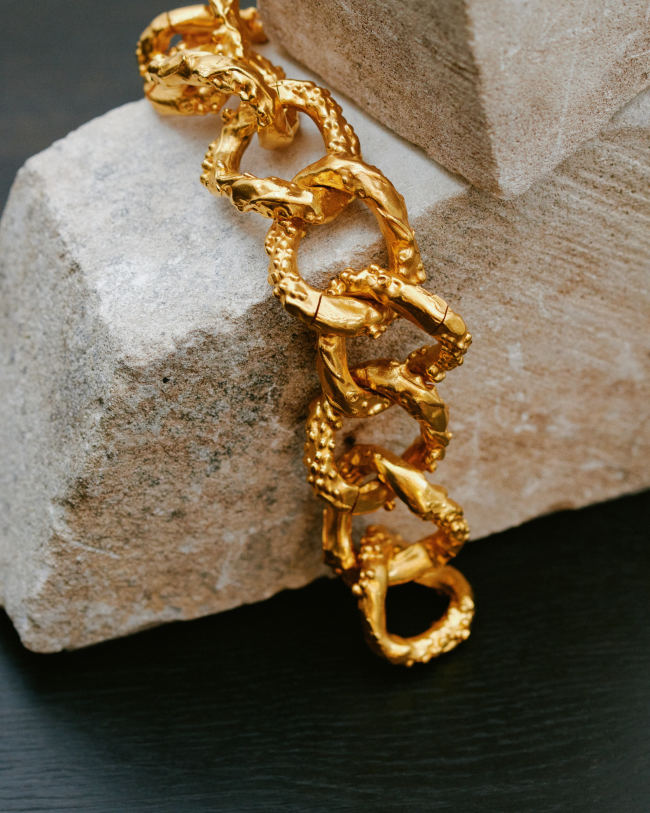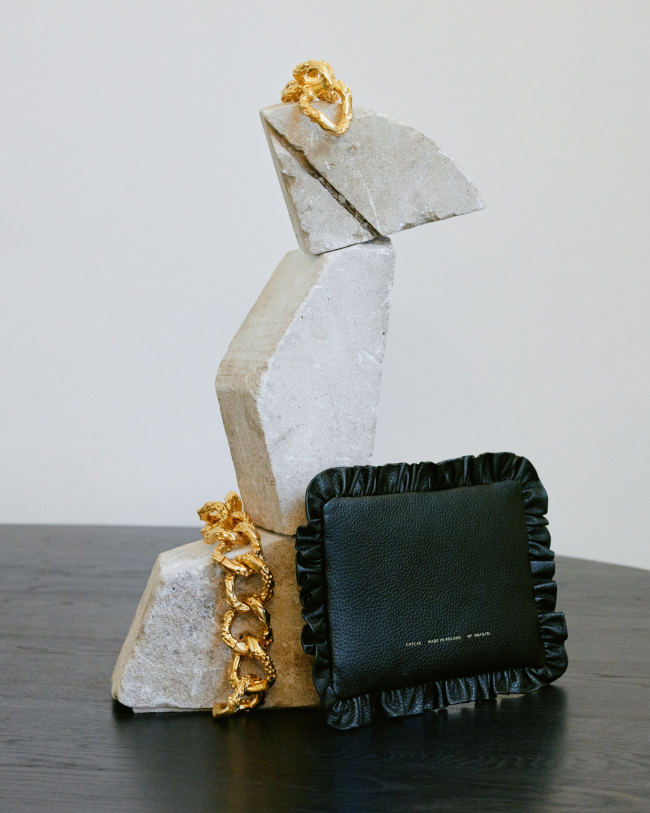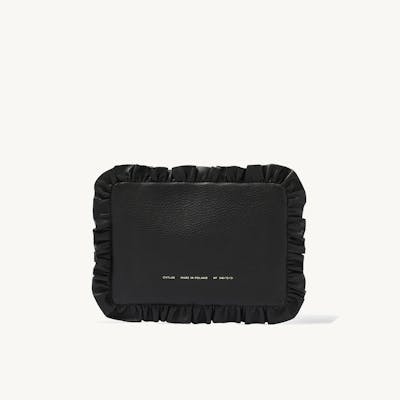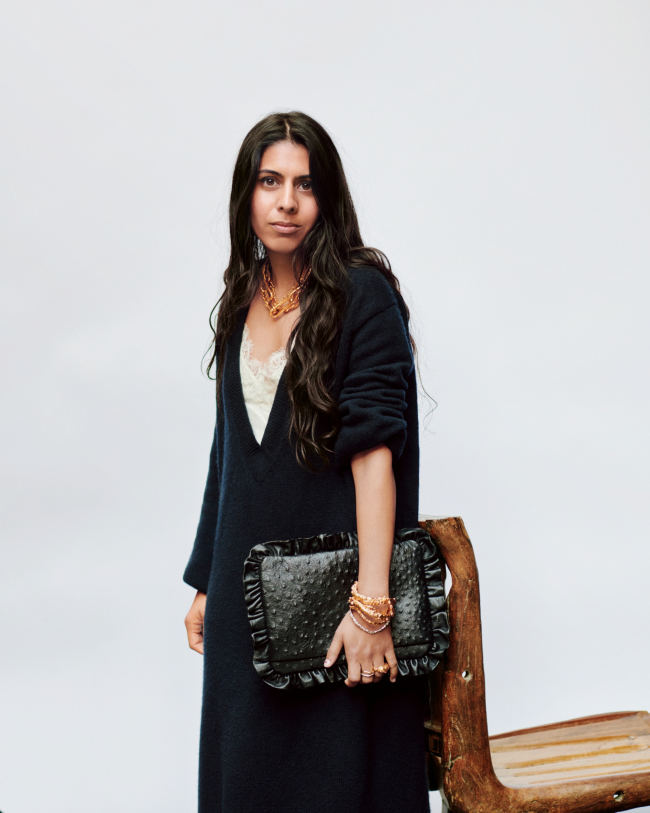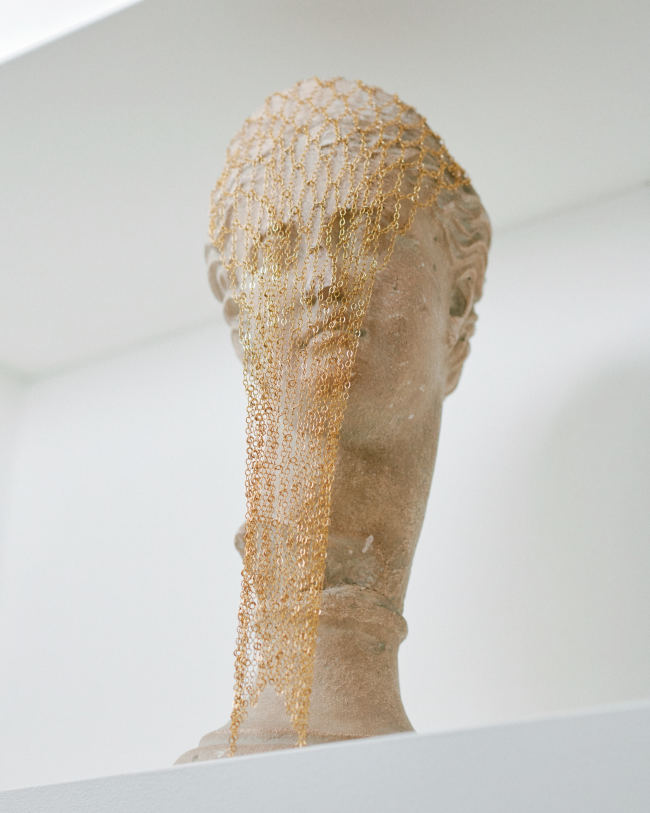Rosh Mahtani

Text: Maja von Horn
Photography: Benjamin Werner
After graduating from Oxford University with a degree in French and Italian, Mahtani felt “super lost.” She found comfort in the pages of The Divine Comedy by 14th-century Italian poet Dante Alighieri, which inspired her to start making jewellery – a piece for each of his 100 poems. Eight years later, her jewellery brand, named Alighieri after the poet, is stocked in more than 110 stores and adored by women and men worldwide.
Maja von Horn: Your grandparents left India for Zambia, with not much more than the few pieces of jewellery they owned, family heirlooms. Did growing up in Africa have a big impact on your life?
Rosh Mahtani: Definitely. I grew up in Zambia, in a very small town. There was nothing to do there, so you really had to make your own fun. I remember making paint out of leaves, making little notebooks and stitching them together. I also used to collect stones, I was always drawn to objects. Living in Africa at that time was really formative for me. I just lived in my imagination.
M.V.H.: You were nine years old when your family decided to move to London. Was that when you started discovering your passion for literature?
R.M.: It was always about stories and storytelling for me. I used to write little stories, I really loved reading, this was my world. Maybe it was a form of escapism, but I loved the idea of going to another universe. I always found that really special.
M.V.H.: Years later you graduated from Oxford University, with a degree in French and Italian. Was that a dream of yours growing up?
R.M.: I never thought that I would ever be able to do that. Neither of my parents went to university, they came from a very humble background. Growing up I never knew exactly what I wanted to do. I thought about being a journalist, I’ve always loved the idea of languages, of telling stories and writing. The common factor for all the things that I dreamt of doing was communicating with people and hearing people’s stories.

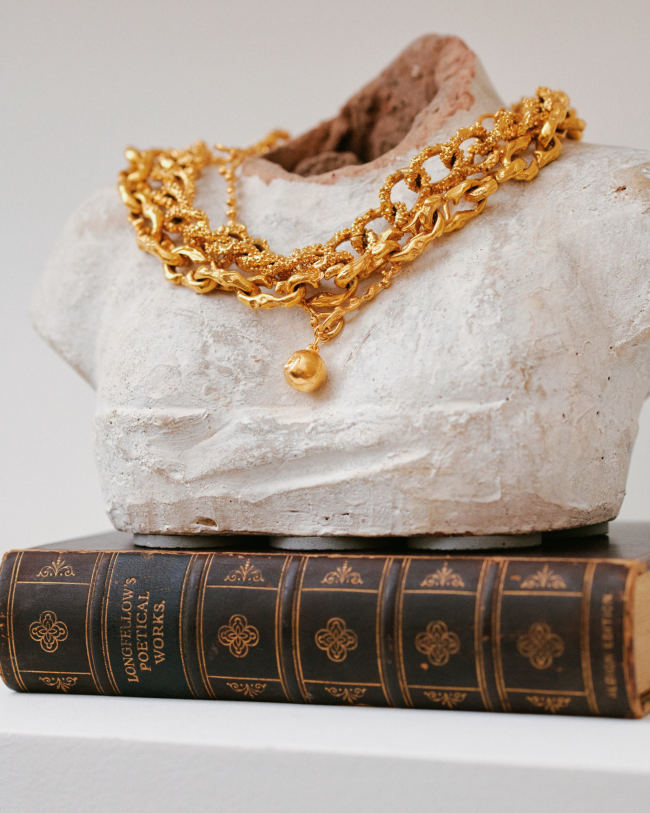
M.V.H.: Was it at university that you discovered Dante Alighieri and his Divine Comedy, which later became the inspiration behind your jewellery brand?
R.M.: Growing up I loved languages. I started learning French when I was quite little, and then at the age of 19 I went to Italy for the first time, and I absolutely fell in love with the culture, the food, the passion that people had, their way of communicating. So I decided to study French and Italian because I thought it was a great opportunity to learn the languages, to travel and explore art. History of art has always been important to me. That’s how I discovered Dante Alighieri. I fell in love with his Divine Comedy, because it is a story of one feeling lost and not knowing how to find the light. I think that’s a very universal journey.
M.V.H.: You connected with Dante’s loneliness to such an extent that you decided to name your brand after him. Was it jewellery born out of loneliness?
R.M.: That’s how I felt a lot in my childhood, I couldn’t really figure out where I belonged, I felt super lost and very alone in the world. So I wanted to start a dialogue and to help other people feel less alone. We’re more connected now than we have ever been, but we’re also more alone.
M.V.H.: Did your loneliness have anything to do with living in a large city like London?
R.M.: I think it went really deep into my identity, to who I was. My grandparents were from India, and I never spent time in India. In my childhood I felt like Zambia was my home, but then we moved to London, and in school I was the only person of colour, which really made me feel like an outsider. It was a journey to figure out my identity. That was my loneliness – the feeling that you don’t belong anywhere.
M.V.H.: You started the Alighieri brand by designing a piece of jewellery for each of Dante’s 100 poems in Divine Comedy. Did that turn out to be a therapeutic process?
R.M.: Absolutely. It was very therapeutic and really cathartic.


M.V.H.: What does your design process look like? After all, you’re self-taught.
R.M.: I did a one-day course in wax carving and fell in love with wax. It was a medium that really spoke to me, I felt really connected. I bought some wax and I started making. I really didn’t know anything about it, but I loved the fact that I didn’t know the rules, it gave me this freedom to play that was really exciting.
M.V.H.: What kind of wax is it?
R.M.: It’s a special kind of wax that you can cast. I started sculpting out of it, creating textures that felt like creatures from The Divine Comedy. I wanted to explore the idea of imperfection and vulnerability through texture.
M.V.H.: It’s been eight years since you started the Alighieri brand, has the design process changed a lot from how it was at the beginning?
R.M.: Not really, it still starts with me sitting down with my wax. I always use a candle to start the process, so it feels very much like a ritual, it’s quite magical. I always stay very true to that way of designing.
M.V.H.: What do you cast the wax in?
R.M.: Recycled silver and recycled bronze which is gold-plated with solid recycled 9-karat gold. We make everything locally in London, which is really great.
M.V.H.: When it comes to inspiration for the new collection, do you still look for it in literature?
R.M.: Sometimes I read The Divine Comedy again and I find something that resonates with how I’m feeling at the time. Another time I will see a painting that will remind me of something. It all comes together quite organically, like a combination of things I’ve seen and felt at that time in my life, and then The Divine Comedy works its way into that.
M.V.H.: And what women do you find most inspirational, do you have any muses that influence you?
R.M.: I absolutely love Pina Bausch, her exploration of tension, pain, and human connection. She was really interested in going deep with people, exploring some universal pain and joy. I also love her aesthetics, the fact that she had her uniform, wore the same thing every day. Simple, but very powerful. I also really love Georgia O'Keeffe, both her style as a person and her painting. But one of my favourites has always been Salvador Dali. I love that surrealist sense of humour which takes you to a completely different universe where rules don’t exist.
M.V.H.: You started the company on your own, how many people do you employ now?
R.M.: It’s a team of 27 people. I feel very lucky, because they’re amazing people with a shared passion for growing the brand together. Everyone is very kind and hilarious, it’s really special, we’re like a family.
M.V.H.: What’s most challenging when running your own jewellery business nowadays?
R.M.: I think the biggest one is balancing the creative with the commercial, never compromising the brand’s aesthetic in order to make a sale. Keeping the balance between being an accessible brand, but also retaining that magic, never losing the magic.
M.V.H.: Have you made any career mistakes that you’d like to share with those who are starting now?
R.M.: We all make mistakes in the beginning. When we turned over three million pounds, there were only three of us in the business. I felt so close to every part of the business that I never wanted to delegate anything, I wanted to do everything myself. Looking back, I wish I had brought more people along for the journey sooner. These are the things you have to learn. Now I’m much more open and able to hand things over to the team. But I do think I took a little bit longer than I should have.
M.V.H.: Does London have a big influence on what you do?
R.M.: London is an amazing melting pot of different cultures. My family lives in Hampstead in North London, which feels like a little village, everyone has a dog there. London has so much to offer, there’s something here for everyone.
M.V.H.: Does it have a big impact on your aesthetic vision?
R.M.: There are no rules in London. There’s great freedom, and you can really express yourself. I’m very uniform-based, I wear the same things over and over again. It’s always a slip dress, a really oversized cashmere jumper and loads of jewellery. Very monochrome, usually navies, black and white. I like to keep my wardrobe really simple and then use the jewellery to express myself.
M.V.H.: Last but not least, what helps you go through this challenging time of the pandemic?
R.M.: To be honest, work has helped me a lot. Being creative, making things physically, with your hands, can be really therapeutic in difficult times.
Rosh’s Favorite Places in London
- Jin Kichi - the best Japanese food
- Alfie’s Antiques - antiques shop
- Hampstead Heath - great for dog walks
- The Well’s Tavern - my favourite pub
- M Kardana - vintage furniture
